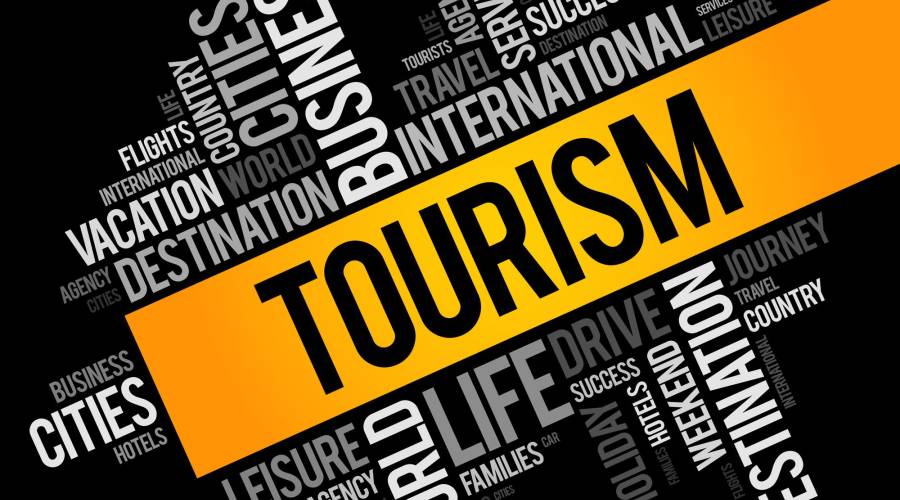
"The Tourism Industry: A Vital Engine for Global Growth, Culture, and Sustainability
The tourism industry drives global economies, cultural exchange, and environmental conservation. Key sectors include accommodation, transportation, and attractions, with trends like digitalization and sustainable travel shaping its future.
Tourism Industry: Its Importance and Key Points
The tourism industry is one of the fastest-growing sectors in the global economy, playing a crucial role in the development of many countries. It involves the movement of people from their home locations to destinations outside of their usual environment for leisure, business, or other purposes. The industry encompasses various sectors, including accommodation, transportation, attractions, events, food services, and travel agencies, all working together to provide a seamless travel experience.
For educational institutions, particularly those specializing in tourism and hospitality, understanding the complexity of the tourism industry is essential. This knowledge prepares students for careers that range from travel consulting and hotel management to event planning and destination marketing.
1. Importance of the Tourism Industry
The tourism industry’s significance can be understood through its multi-faceted contributions to economic, cultural, and environmental aspects:
Economic Impact
Tourism is a major contributor to the global economy. It generates significant revenue for countries through foreign exchange earnings, job creation, and the development of related sectors such as retail, transportation, and entertainment. The World Travel and Tourism Council (WTTC) estimates that tourism directly accounts for over 10% of global GDP, emphasizing its role in economic growth. In many developing countries, tourism is one of the primary industries, helping alleviate poverty and enhance infrastructure development.
Cultural Exchange and Preservation
Tourism promotes cultural exchange, allowing visitors to experience different ways of life, traditions, languages, and customs. This cultural interaction fosters understanding and cooperation between nations. Moreover, tourism often encourages the preservation of historical sites, local heritage, and art, which might otherwise deteriorate without the funds brought in by visitors.
Environmental Conservation
Sustainable tourism has become a growing focus within the industry, emphasizing the need to protect natural environments while providing economic benefits. Ecotourism, for example, promotes responsible travel to natural areas that conserve the environment and improve the well-being of local communities. Through careful planning and regulation, tourism can support biodiversity conservation and raise awareness about environmental issues.
2. Key Sectors within the Tourism Industry
The tourism industry is a broad and dynamic field made up of several interrelated sectors, all contributing to the traveler’s overall experience. Below are the major sectors:
Accommodation
Accommodation includes hotels, resorts, hostels, guesthouses, and vacation rentals. This sector is a cornerstone of the tourism industry, providing travelers with places to stay during their trips. Hotels, for example, range from budget accommodations to luxurious resorts, offering varying levels of service based on customer needs and expectations.
Transportation
Transportation services involve airlines, buses, trains, and cruise ships that enable tourists to reach their destinations. Efficient transportation networks are vital for the success of any tourism destination. Additionally, the rise of low-cost carriers (LCCs) has made air travel more accessible, significantly boosting international tourism.
Attractions
Attractions can be natural (such as national parks and beaches), cultural (such as museums and historical landmarks), or entertainment-based (such as theme parks). The quality and diversity of a destination’s attractions are key drivers of tourism demand, making them essential to a region’s appeal.
Food and Beverage
The food and beverage sector caters to tourists’ dining needs, whether through restaurants, cafes, or street vendors. Culinary tourism is growing, with travelers seeking authentic food experiences, such as wine tours in France or street food in Southeast Asia. This sector contributes not only to the tourist experience but also to local economies by showcasing regional cuisine.
Travel Agencies and Tour Operators
These entities facilitate the booking of travel experiences, offering everything from individual travel arrangements to all-inclusive packages. They act as intermediaries between tourists and service providers, ensuring that travelers’ needs are met through tailored itineraries and guided tours. In recent years, online travel agencies (OTAs) have gained prominence, providing digital platforms for convenient bookings.
3. Major Trends Shaping the Tourism Industry
To remain competitive and relevant, tourism professionals need to be aware of key trends influencing the industry:
Digitalization
The rise of technology has transformed how travelers research, book, and experience travel. Online travel platforms, mobile apps, and social media have made travel planning more accessible and personalized. Virtual tours, for instance, allow potential tourists to explore destinations online before committing to a trip.
Sustainable Tourism
There is an increasing demand for eco-friendly travel options. Sustainable tourism initiatives focus on minimizing environmental impact and supporting local communities. Destinations and businesses are now incorporating renewable energy, waste reduction strategies, and sustainable infrastructure to appeal to environmentally conscious travelers.
Health and Wellness Tourism
Health and wellness tourism, including medical travel and spa retreats, has seen significant growth. Travelers are increasingly seeking destinations that offer rejuvenation, relaxation, and health-related services, such as wellness resorts, yoga retreats, and specialized medical treatments.
Cultural and Experiential Travel
Modern travelers prioritize immersive experiences over traditional sightseeing. This has led to the growth of experiential travel, where tourists engage with local communities through cultural workshops, artisan tours, and nature-based adventures. Travelers seek authentic, hands-on experiences that provide deeper connections to the destinations they visit.
4. Challenges Facing the Tourism Industry
While the tourism industry is thriving, it also faces several challenges that professionals must navigate:
Overtourism
Overtourism occurs when a destination becomes overwhelmed by the number of visitors, leading to environmental degradation and a diminished experience for tourists. Popular destinations like Venice, Barcelona, and Bali have implemented measures to manage visitor numbers, including tourist taxes and quotas, to combat this issue.
Global Pandemics
The COVID-19 pandemic demonstrated the vulnerability of the tourism industry to global crises. Lockdowns and travel restrictions led to a dramatic decline in international travel. The industry has had to adapt by implementing health protocols, focusing on domestic tourism, and enhancing digital infrastructure to maintain operations.
Seasonality
Many tourism destinations experience significant fluctuations in visitor numbers depending on the season. For instance, beach resorts may thrive in summer but struggle in winter, requiring careful planning and diversification of offerings to maintain year-round profitability.
5. The Role of Education in Tourism
Tourism education plays a crucial role in preparing students for careers in this dynamic industry. Institutions must focus on equipping students with both theoretical knowledge and practical skills. Key areas of study include:
- Sustainable Tourism Management: Teaching students about environmentally responsible tourism practices.
- Destination Marketing: Understanding how to promote destinations effectively through digital and traditional marketing channels.
- Cultural Competency: Educating students on cross-cultural communication and the importance of cultural sensitivity in the tourism sector.
- Hospitality Management: Training in customer service, event planning, and hotel operations, ensuring students are prepared for the challenges of managing tourism-related businesses.






